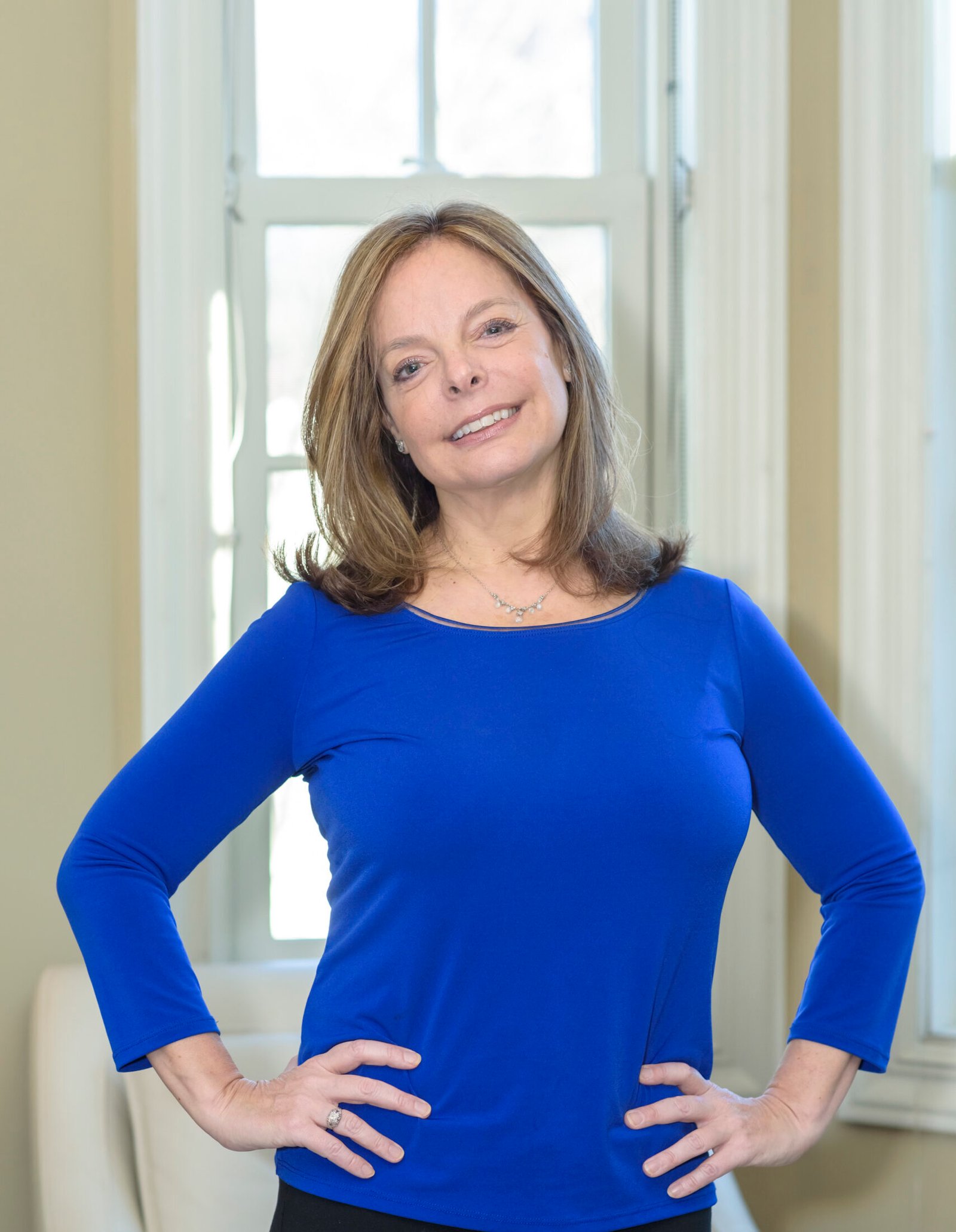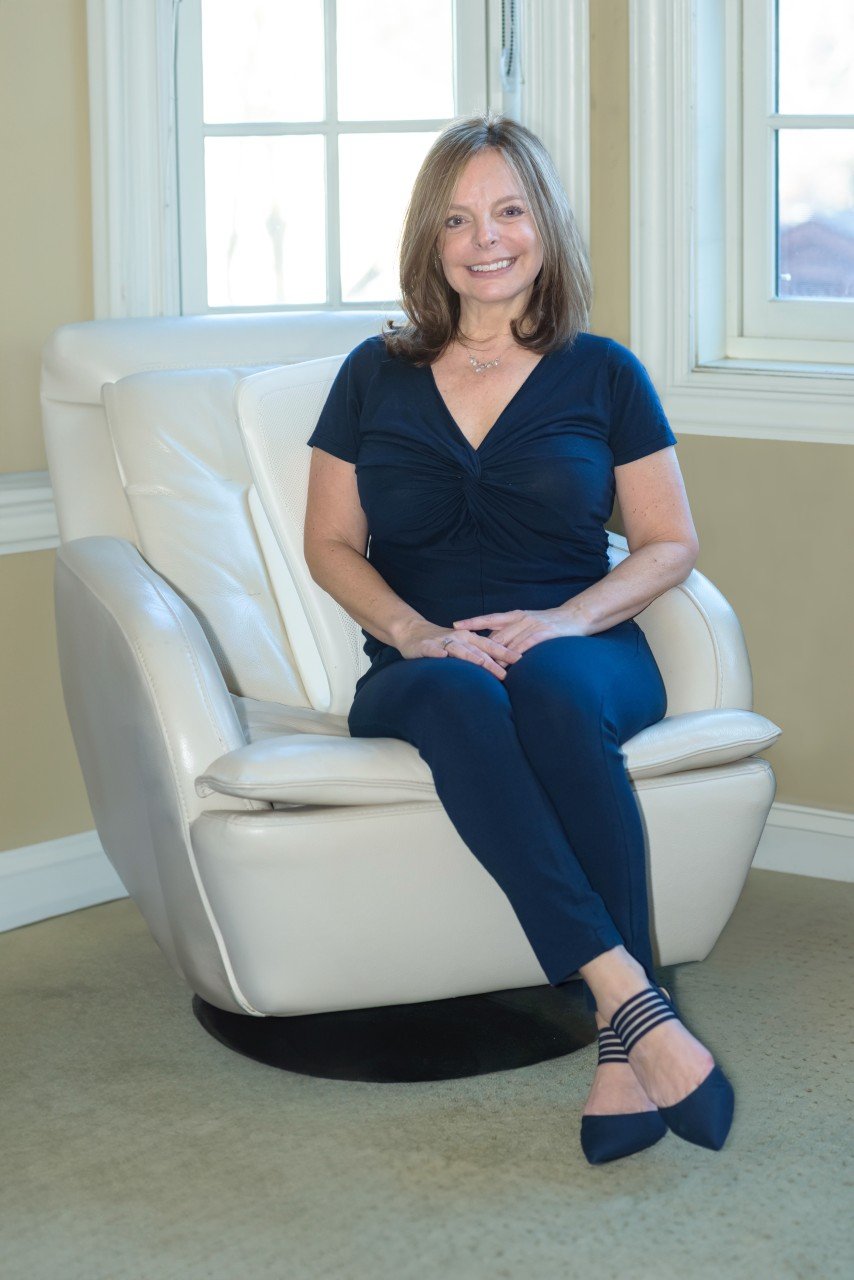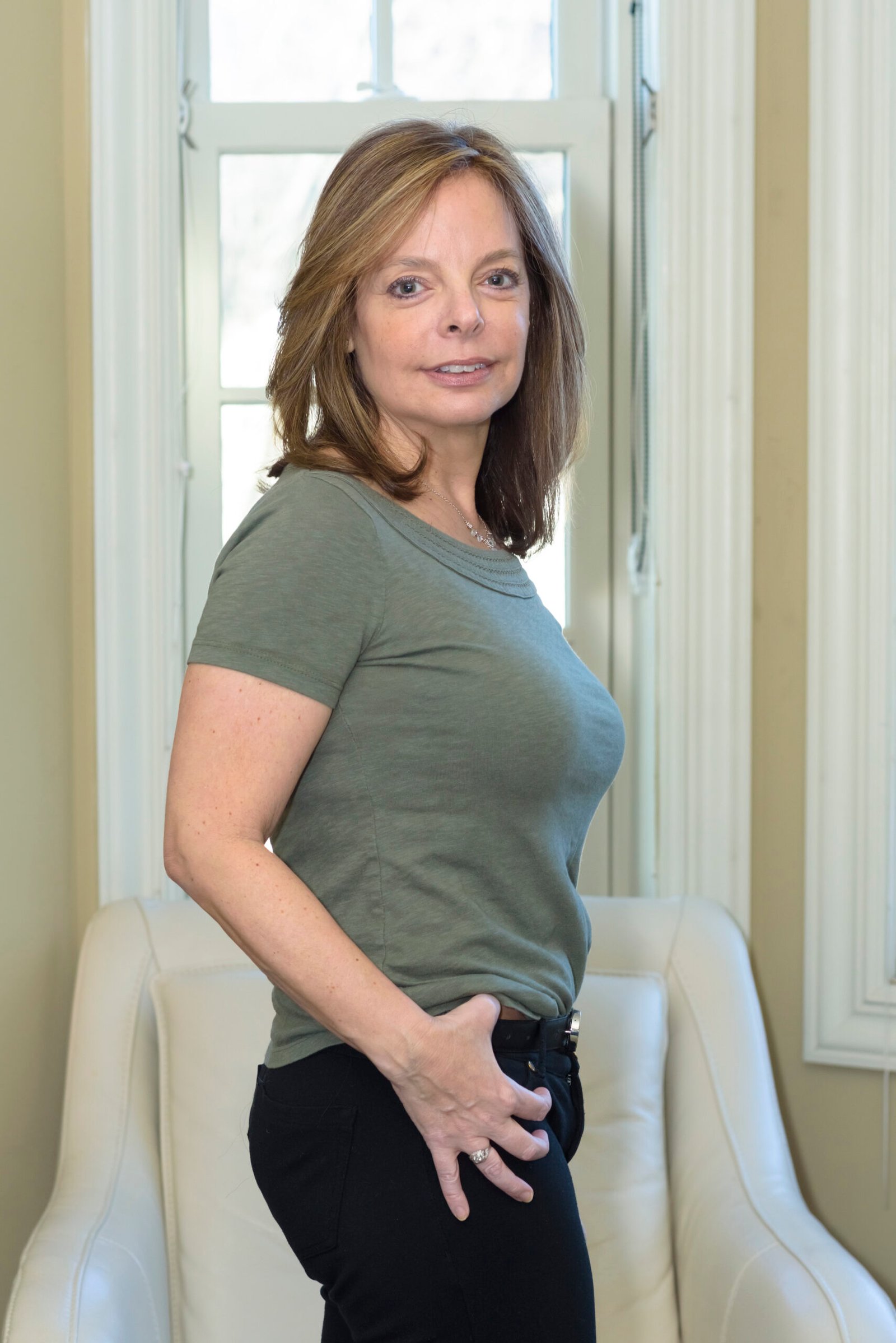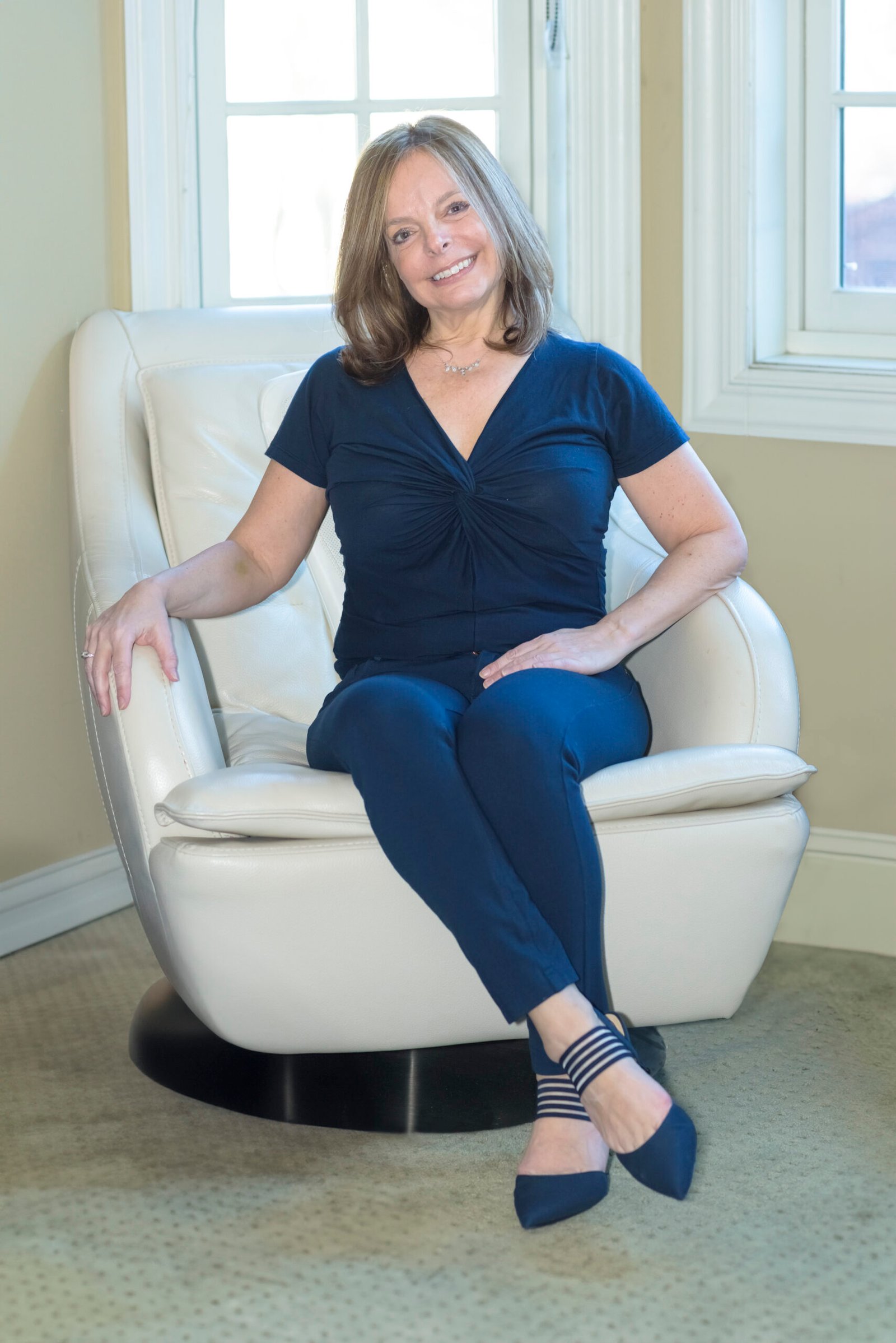As the world navigates digital overload, emotional burnout, and a growing need for authentic human connection, Suzanne Lachmann, Psy.D. stands out as a powerful voice in modern psychology. A New York State licensed clinical psychologist with offices in Manhattan and Westchester, she earned her Doctorate from the Ferkauf Graduate School of Psychology at Yeshiva University.
Since 9/11, Dr. Lachmann has served as a consulting psychologist for the Fire Department of the City of New York (FDNY), strengthening her expertise in trauma and resilience while supporting New York’s bravest. Her professional insights have been featured in major publications including TIME, Women’s Health, Men’s Health, Cosmopolitan, USA Today, and The Wall Street Journal.
CEO Scoop Magazine proudly honors Dr. Lachmann as the Top Influential Woman Leader of the Year— celebrating her commitment to healing, empowerment, and meaningful human connection.
The Inception Story of Dr. Suzanne Lachmann

For Dr. Lachmann, psychology is not merely a profession — it is a calling that has shaped every stage of her life. Long before she earned clinical credentials, she was the empathic listener among friends, instinctively drawn to understanding the human mind and offering comfort to those in need.
Her path was influenced early on by her father, a clinical psychologist and psychoanalyst who practiced for more than seven decades. Yet, it was not imitation that led her to the field — it was intuition. Even as a child, she recognized that helping others would be her life’s purpose.
Growing up on the Upper West Side of New York City, as the daughter of two Holocaust survivors, one who escaped from Germany, the other from Belgium, she developed a profound understanding of human resilience and the immigrant experience. Their stories shaped her awareness of trauma, identity, and survival in a changing world.
Her professional journey began with meaningful work well before graduate school. From scooping ice cream at her first job — observing people through the smallest interactions — to participating in groundbreaking research. Every role contributed to her evolving insight into human behavior. She worked on studies involving mother-infant relationships at Columbia Presbyterian Hospital, and at Louisiana State Medical center in New Orleans, pain AIDS at Memorial Sloan Kettering, and with people living with HIV and AIDS and substance abuse disorders on Long Island and in the Bronx.
These experiences deepened her empathy and sharpened her curiosity. Her pursuit of academic excellence took her from New York to Denver to New Orleans before returning home to pursue a doctorate — a rigorous undertaking that requires years of study, clinical internships, research, and supervised practice. Throughout this demanding journey, she embraced the importance of each step, knowing that becoming a psychologist is not simply about earning a degree — it is about growth, observation, and evolution.
After completing years of advanced education and supervised clinical work, she earned the license that allowed her to open her own practice — finally stepping into the role she always envisioned for herself: an independent clinician helping people heal and thrive.
Her message to those who aspire to follow a similar path is clear: The journey will be long. It will test your patience, resilience, and determination. But every moment — every job, every challenge, every human interaction — will teach you something vital.
CEO Scoop: Your work since 9/11 with the FDNY is a profound part of your story. How did this experience change you as a therapist?

Dr. Lachmann: This career has given me so many incredible opportunities. To this day I still work with firefighters who either survived the towers falling, or responded to the site where the towers had fallen in the aftermath.
My work with firefighters since then has been the greatest honor of my professional life. Professionally speaking, I happened to be in the right place at the right time to be given such an extraordinary opportunity. At the time I was attending NYU’s Postdoctoral Program. (For the record, postdoctoral programs are not mandatory. You must already be licensed to be admitted, programs like the one I attended at NYU are designed to create community among clinicians in private practice via group supervision and advanced learning.) NYU and the Counseling Services Unit of the FDNY are just a short distance from each other in the lower part of Manhattan. I responded to a post that had gone out to NYU postdoctoral students called “The Clinicians in the Firehouse Program.”
On 9/11, 2,753 people lost their lives when the two buildings collapsed. Three hundred and forty three of them were f irefighters. Those firefighters had come from 63 firehouses across Manhattan and Brooklyn. Through the joint effort of NYU and the FDNY’s Counseling Services Unit, I was assigned to a firehouse that had lost seven men.
There was no blueprint for this kind of work, no manual to follow. I just had to wing it. I broadened my skill set and challenged some of the “old school” lessons I had learned in graduate school, such as the Dr. must remain stoic while the patient speaks.
I had to improvise – being assigned to a f irehouse meant I was imposing on their space while they were grieving. They were not coming to my office, many had never been in therapy before. I had to go to their place of work: a place where the alarm would sound and they’d have to leave, and return to find me still there, waiting to continue our conversation. T here had never been a situation like this one before. I was not going to a hospital, clinic, or school where I was expected, rather to their home away from home to work with people who had just endured a horrific tragedy: one that many of us across the world were grieving at the same time.
Working in the firehouse helped me to recognize that some self- disclosure could be beneficial, particularly for those who had never been to therapy. It helped to normalize their experience. When used carefully and sparingly, the therapy I provided helped the f irefighters to whom I was assigned feel understood and confident that I was able to relate to their experience. I learned in that setting that when I opened up it in turn encouraged others who were typically stoic and guarded to let their guard down and open up as well. That was definitely not taught when I was in graduate school.”
Rather, in grad school we learned we should not disclose anything about ourselves or our experiences in our practices. I was able to gain the trust of these firefighters by showing up at funerals, attending their family gatherings, and having meals with them at their kitchen table in their firehouse.
By just being there and maintaining a more relaxed frame allowed for more spontaneous dialogue which in turn allowed us to dig deeper into how they were processing the loss of 343 of their fellow firefighters. The flexibility that I had exercised with firefighters had a huge impact on how I work as a therapist in general. I encourage people to talk about their experiences in a way where they don’t feel put on the spot. I learned that, depending on the person and what their needs are, when I’m asked about myself, if I disclose some of my life experience it encourages them to feel more comfortable sharing with me.
CEO Scoop: More recently, the COVID-19 pandemic was a global obstacle. How did that alter your practice and the therapist-patient relationship?
Dr. Lachmann: The biggest professional obstacle I’ve faced was undoubtedly COVID. It too changed me as a therapist. For example, I could only work with people remotely. I have patients all over the world who, of course, I was already having video sessions with, but people who lived in the New York, New Jersey or Connecticut area who had been coming to see me in person were now relegated to phone or video sessions with me. There was no way around self- disclosure.
COVID was a surreal time for all us. So, with many of my patients, especially when I had COVID myself but I still felt well enough to work, I’d conduct sessions while in bed. My patients were all very understanding that I preferred to do phone instead of video sessions during that time.
When I was well enough to resume video sessions, everybody collectively seemed to feel less compelled to get dressed in street clothes. During the many months of COVID, my patients often saw me in a t-shirt, my hair messy, but it was all okay because they were in the same position. That’s been, I think, one of the more unique aspects of this work – the amount of times, especially in the last 25 years or so, where the therapist and the patient are going through the same experience at the same time. 9/11 and COVID are two such examples.
In an era defined by digital noise, artificial intelligence, and collective anxiety, the quest for authentic human connection has never been more urgent. CEO Scoop Magazine is proud to feature Dr. Suzanne Lachmann, a distinguished clinical psychologist, as our “Top Influential Woman Leader of the Year.” For our cover story, we sat down with Dr. Lachmann to explore her unique journey, her insights on modern trauma, and her visionary plan to bring humanity back to the forefront of mental health with spontaneity and at times, humor.
For me, COVID meant not being able to commute from my office to my home, which one might think of as a positive, but often times, when commuting home in my car after working long hours, I welcomed the commute. it was my time to unwind, think, reflect and prepare myself to enter a totally different world at home. When working with people who are struggling deeply and are in a lot of pain, to go from being on the phone or video call with them and then having to immediately switch sets to take care of my son in the next room was challenging.
CEO Scoop: A new challenge is emerging with Artificial Intelligence. What is the impact of AI on mental health and the workforce?

Dr. Lachmann: That’s a very good question. AI for many ,is still an unknown, and unknowns can be highly stressful. The realization of the extent to which AI is infiltrating our lives is a relatively new experience. On a personal note, which I think is reflective of experiences that other people have, I f ind that my son will ask “Chat GPT” a question about a social situation instead of asking me. What I see in the answers that he receives is that irrespective of anything else, our humanity is missing, which is what keeps us connected.
It was, for example, our humanity, not AI that brought 7 million people out of their homes on October 18th for the No Kings marches and protests that took place across the United States and beyond that was both amazing and uplifting. You could see the relief on people’s faces being around other people in the same physical space who shared the same concerns. The protests were for the most part peaceful which further awakened people’s sense of belonging to a cause bigger than themselves.
AI can of course be a positive, though I have yet to see how it will be beneficial for the human race in the long run. It has sparked quite a bit of confusion and as a result, paranoia, especially when looking at videos and reading comments on social media. It is frequently hard to distinguish what is real from what isn’t. In the comment sections, after people have seen an exceptionally provocative video of some sort or another, they have to question whether or not it’s real or invented. And I already hear so many people saying, “I’m so sick of this.”
Many of my patients have shared that it is demoralizing to worry that certain responsibilities that they deem important to the work they are doing might soon be replaced. It evokes paranoia and makes people feel replaceable. Or I’ll hear complaints about the AI assistant for an airline for example, where the customer needs a question answered and they have to go round in circles because the AI assistant just doesn’t get it.
It’s not only stressful, it’s frustrating. It can feel like nowhere is safe, except if you’re with other people, live and in person. Perhaps AI will ultimately encourage people to value human contact again, instead of using phones in each other’s presence. When everyone puts their cell phones down, that’s the time to regain our sanity. Otherwise, it’s a mess.
CEO Scoop: Given these complex challenges, where do you envision yourself and your work going in the future?
Dr. Lachmann: Thankfully I have a very well- established practice, but I’m looking to shake things up a bit. The beauty of private practice is that it’s generally flexible. There is a growing need for companies to more rigorously tend to the mental health needs of their employees. I think that ultimately that would be a cost-saving maneuver for any kind of organization that isn’t directly related to my field, because it would mean showing an investment in the employees now as opposed to letting them slip through the cracks. Companies that are willing to support their workers and help them manage crises and improve morale has been shown to increase productivity.
I have had conversations with the the Counseling Services Unit of the FDNY about potentially increasing my role there, but at this stage I think I’m doing as much as I can with firefighters. I want to venture into what has traditionally been called Industrial- Organizational Psychology, which, among other things entails helping companies find meaningful ways to assess and work with people who are struggling and whose performance may have decreased as a result. With help and support and a sense that their workplace is invested in their health and well being, they can plant their feet on the ground again.
CEO Scoop: Finally, what is the core philosophy that guides your work and your success?
Dr. Lachmann: In my practice, I’ve been able to work very closely with patients in ways that they find unique. I’ve received a lot of praise through the years on insights I provide. My suggestions for any one interested in my field or for anyone already working in the field but feel they would benefit from some advice: as a new therapist starting out in private practice, you may not have a choice in who you work with. So, when attempting to establish rapport, the first thing, no matter how unpleasant the person seeking your help may seem, find something to like and appreciate about them.
Chances are they are disconnected from others in their lives and your attempts at connection will mean a lot to them. More often than not, if it’s possible, do your notes after a session instead of during a session, it makes you more able to engage and be in the moment and to more closely observe to their face and body language.
This technique in turn allows more spontaneity between patient and therapist. I’m a firm believer in “knowledge is power and self-knowledge is the ultimate power.” The better you know yourself, the more comfortable you become in situations that may have once stressed you out. This statement holds true not just for patients, but for me.
Once; much earlier in my career, I asked my father what to do when I recognized I had patients who were smarter than me. He reassured me, and hopefully it reassures the generations of new therapists out there as well: no matter what, you must hold on to the notion that you are smarter in the areas that they’ve come to see you about.
It’s not about intellect; your intellect versus theirs. Rather, it’s your ability to be empathic, compassionate, connected and willing to listen and do your best to understand their experience.
CEO Scoop: Who or what has been the most significant sources of inspiration throughout your life and career?
Dr. Lachmann: The singular source of inspiration in my life, well, I have to say there are three. One is my father, one is my son, and one is my work with the New York City Fire Department.
CEO Scoop: You’ve also developed a specialty in writing about breakups. What drew you to that specific area of grief?

Dr. Lachmann: I have been writing about breakups for a long time. I had a blog at PsychologyToday.com called “me before we,” where I’d write about all aspects of T he human condition. I noticed that my articles about breakups were the ones most widely read. But, once Trump got into office, I diverted my attention and damage control from the trauma of breakups to the trauma in survivors of sexual and physical abuse which was re triggered when he was elected the first time, never mind this time.
The division the Trump administration has stoked in the general public has resulted in countless breakups as differing political views evoke more hostility and resentment than ever, so I’m turning my attention back to breakups particularly for those who did not anticipate a breakup but felt they had no choice because of their extreme differences in political views.
I conceptualize breakups as their own grieving process which can evoke similar feelings to a death. One of the key differences is that a breakup is like a rejection on top of a death. The person who rejected you is still walking around in the world, which means you have to contend with the possibility that they may find a new romantic partner, have children with somebody else, etc.
When I started writing about breakups, I developed a pretty strong following and a lot of very positive feedback. You can f ind the majority of my articles on my DrSuzanneL.com page along with some of the feedback I’ve garnered. The articles are also in the archives of my PsychologyToday. com blog. I’m working on a book about breakups called “Your Epic Breakup, Journey from Loss to Hope,” which I hope to complete by this spring.
CEO Scoop: For our readers who are leaders and executives, what is the most important piece of advice you have for fostering mental well-being in their organizations?
Dr. Lachmann: Absolutely make mental health services available not just for your employees, but for yourself as well. Caring about the mental health needs of your staff is morale-boosting. Your employees will function at a much higher level if they feel like they are not alone in their struggles. There is nothing more powerful than feeling heard and understood.


